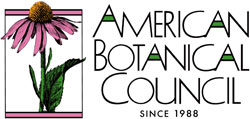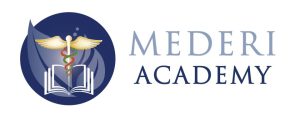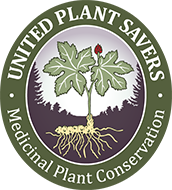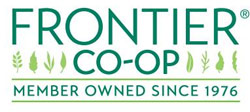Past Conference May 31 – June 3, 2019
Recordings and lecture notes now available here.
Thanks to all who made this a weekend to remember! Next year’s dates: May 29 – June 1.
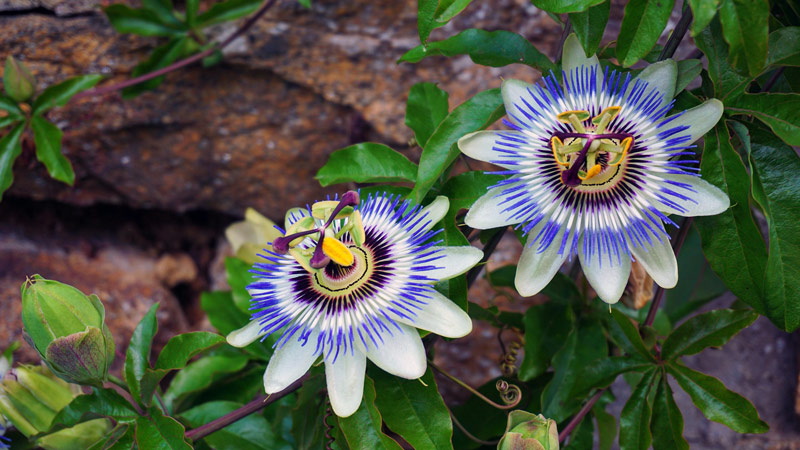
Annual symposium at Blue Ridge Assembly, Black Mountain, NC, May 31 – June 3, 2019.
Theme: Current Research on Aging Disorders and Botanical Solutions
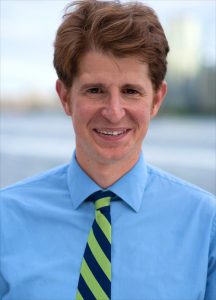
Highlights: More than 40 presentations on clinical applications of botanical medicine. PLUS Saturday keynote with internationally known author and environmental activist Leo Trasande, MD, MPP, Friday field studies, a pre-conference intensive with Lise Alschuler, ND, panel discussions, medicine-making classes and herb walks in a beautiful retreat setting.
Speakers and topics
Schedule
Continuing Education
Registration information:
Registration Fees
$329 by March 5
$399 by April 12
$459 after that date
Online registration and phone registration are now closed.
You are welcome to register at the door.
Registration fee covers all lectures, panel discussions, the keynote address and other group meetings. Extra fees for intensives, lodging and meals
Information: 541-482-3016

FRIDAY PRE-CONFERENCE EVENTS MAY 31
- Intensive: The Impact of Stress on Accelerated Aging: Botanical Remediation with Lise Alschuler
- Ethnobotanical and Native Plant Field Study with David Winston, RH(AHG) (Field Study now FULL)
- Ecology, Propagation and Cultivation of Native and Oriental Medicinal Herbs with Joe Hollis at Mountain Gardens in Burnsville, NC (Mountain Gardens class is now FULL)
Read more about Friday intensives
FEATURED PRESENTATIONS JUNE 1 – 3
Botanical medicine integrated with the latest research. More than 40 lectures including:
- Slow the Decline: New Developments in Brain Boosting Herbs
- A Tale of Cancer and our Aging Genome
- Demystifying Detoxification
- Signaling Networks of the Human Body and Botanical Medicine
- The Persistence of Memory: Oneirogenic (Dream Enhancing) Plant Medicines
- Treatment of Mood Disorders with Botanicals, Lifestyle, Diet and Nutraceuticals
- TCM and Ayurvedic Herbs that Western Clinicians Really Need to Know
- Saturday night Keynote: Endocrine Disruptors: History, Recent Research and Individual and Societal Remedies with Leo Trasande, MD, MPP
Blue Ridge Assembly
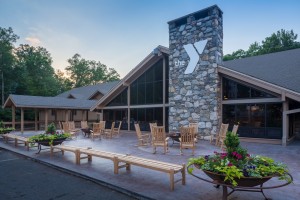
Blue Ridge Assembly, 84 Blue Ridge Circle, Black Mountain, North Carolina
The symposium site is nestled on a mountainside surrounded by 1200 forested acres with two rushing streams. Lodging, dining and lectures are all within walking distance. Blue Ridge Assembly is 40 minutes east of Asheville, NC
Blue Ridge Assembly–much more than just a hotel! Read about it here.
All inclusive lodging and meal packages start at $186 total for three night’s lodging and eight meals. Commuter meals are also available for $72 for the weekend.
Blue Ridge Assembly Lodging and Meals Online Registration
Blue Ridge does not take reservations by phone.
Friday May 31
Pre-conference events at Blue Ridge Assembly. Participants may reserve lunch in advance from Blue Ridge here (“Early arrival needs”). Symposium registration required to attend these extra events.
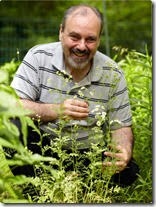
10:00 AM – 3:00 PM
SORRY THIS EVENT IS NOW FULL
Ethnobotanical and Native Plant Field Study
David Winston, RH(AHG)
Herbalist, ethnobotanist and researcher David Winston leads a journey into the traditional and current uses of the plants found on the grounds of Blue Ridge Assembly. This event fills every year so please register early! 35-person limit. $69
Read more about the Field Study here.
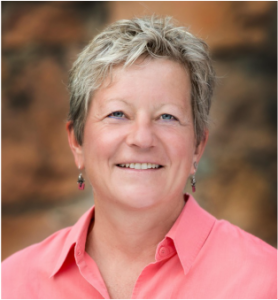
1:00 PM – 5:15 PM
Intensive: The Impact of Stress on Accelerated Aging: Botanical Remediation
Lise Alschuler, ND
Integrative practitioners recognize the impact of stress on health. We routinely incorporate stress management into our care plans, but how many of us truly understand how stress contributes to disease and to aging? This intensive provides current understanding of the maladaptive stress response, Circadian rhythm disorder, and cortisol resistance. The associated endocrine, immune, musculoskeletal, neurological and digestive consequences of premature aging are explored. ($89)
Learn more about this intensive.
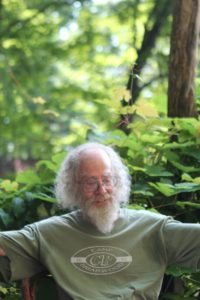
1:30 PM – 5:30 PM
SORRY THIS EVENT IS NOW FULL
Ecology, Propagation and Cultivation of Native and Oriental Medicinal Herbs at Mountain Gardens
Joe Hollis
Mountain Gardens is a forty-year-old botanical garden incorporating the largest collection of medicinal herbs in the eastern US. Follow expert botanist and horticulturist Joe Hollis on a leisurely plant walk with detailed information on the ecology, propagation and cultivation of the herbs. We also look at the Mountain Gardens nursery, apothecary and seed bank. Limit 20. $59
Read more.
5:00 PM – 8:00 PM
Registration at Blue Ridge Assembly, Exhibit Hall Opens
(5 – 7 PM Live old time mountain music. Come join the fun!)
Saturday June 1
7:30 AM – 8:30 AM Breakfast (for those who’ve purchased meals beforehand)
7:30 AM – 8:30 AM Registration: Blue Ridge Center Lobby
8:30 AM – 9:15 AM Opening Meeting: Washburn Auditorium
(Concurrent lectures–choose one–no need to sign up in advance.)
9:30 AM – 11:00 AM
28 TCM and Ayurvedic Herbs That Western Clinicians Really Need to Know
David Winston, RH (AHG)
Each culture and medical system has its foundational herbs that are essential for effective treatment. There are unique herbs in TCM and Ayurveda that have no western equivalent or effective substitute. One of the drawbacks of herbs from China or India is quality, as many of these herbs are contaminated with heavy metals, pesticide residues or simply old or inert. This class is designed to remedy both of these issues. David has chosen 28 important and clinically useful herbs commonly used in TCM and Ayurveda that you really need to know. These herbs are easily cultivated, so you no longer need to depend on foreign sources. Expand your materia medica, improve your ability to help your patients and get access to fresh, effective medicines all at one time..
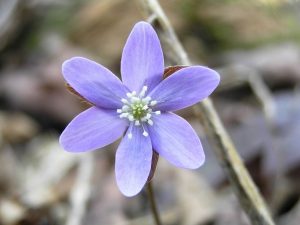
Five Allies for our Times
Kat Maier, RH(AHG)
This class explores the wonderful medicine of Lobelia, (Lobelia inflata), Poke (Phytolacca americana), Prickly Ash (Xanthoxylum americanum), Motherwort (Leonurus cardiaca) and Black Cohosh (Actea racemosa) and how appropriate they are for these changing times. We learn their sacred language through chemistry, medicine making and a brief plant journey.
Breast Cancer Update
Lise Alschuler, ND
This presentation provides an overview of breast cancer diagnosis, conventional treatment and integrative management strategies. Advances in imaging and tumor genomics are discussed. The implications of the TAILORx study on chemotherapy recommendations are summarized. New conventional protocols for ER+, HER-2-neu positive and triple negative breast cancers are discussed and we conclude with an evidence-based synopsis of foundational nutrient and botanical interventions in the naturopathic management of breast cancer.
A Botanical Field Walk
7Song RH(AHG)
Walk the trails of Blue Ridge Assembly and learn the botanical characteristics of native and introduced plants in the local area. Discover their medicinal, edible and other uses, and ways to gather and prepare them, as only 7Song can describe them!
11:00 AM – 11:30 AM
Refreshments and Exhibit Break
11:30 AM – 1:00 PM
Botanical Interventions in the Treatment of Liver Conditions-Including Fatty Liver Disease, Fibrosis, and Gall Bladder Dysfunction
Kenneth Proefrock, ND
Nonalcoholic fatty liver disease affects an estimated 8 to 10 million people in the US. It occurs in every age group, but especially in people in their 40s and 50s who are at high risk of heart disease because of such factors as obesity and type 2 diabetes. These conditions are also closely linked to metabolic syndrome, which is a cluster of abnormalities including increased abdominal fat, poor ability to use the hormone insulin, high blood pressure and high blood levels of triglycerides. Discover how alternative medicine offers a number of treatment possibilities through lifestyle modification, specific exercise, nutritional adjustments and botanical medicine interventions.
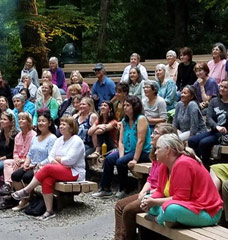 Calm, Cool, and Uplifted with Mood Enhancing Plants
Calm, Cool, and Uplifted with Mood Enhancing Plants
Mary Bove, ND
Staying centered and upbeat can be a challenge at times, one that can influence quality of life and one’s outlook on the future. Plants can affect mood and emotional wellness through several mechanisms of brain physiology, including neurotransmitter function, oxygen supply, and more. Meet several herbs that promote relaxation and uplift mood. Learn several methods of application and herbal preparation that can be used safely and effectively.
Organ Reserve: Aging Gracefully
Kevin Spelman, PhD
James Fries, MD introduced the paradigm of “Organ Reserve” in the 1980s. The key to this paradigm is an increased health span of individuals by improving the reserves in their functional capability. This model challenges deterministic genetics and is the foundation of the growing term ‘resilience.’ Understanding this model can aid practitioners in identifying practical therapies which increase resilience against age and disease-related changes and provide a long-term perspective for healthcare that is currently lacking. This presentation’s focus is on tools to improve organ reserve.
Herb Walk
Doug Elliott
Refresh yourself in the beautiful Blue Ridge Assembly forest with Doug, the consummate story- teller, entertainer and harmonica player. Scientific medicinal plant information and folklore are combined in a seamless whole in this walk on the wild side!
1:00 PM – 2:00 PM Lunch
1:00 PM – 2:30 PM Exhibit Hall open in Pavilion
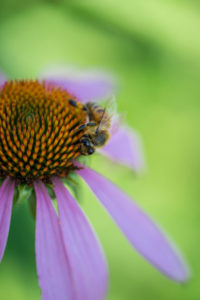
2:30 PM – 4:00 PM
Types of Pain and Herbal Management Tools
Jillian Stansbury, ND
This lecture discusses some of the most commonly encountered types of pain including musculoskeletal, neuralgic, and nociceptive pain. The mechanisms of action of selected anodyne herbs are explored and sample formulas for specific conditions are presented.
Botanical Medicines and Cellular Receptor Networks
Jason Miller, DACM, LAc
The role of signaling molecules and cellular receptors in regulating biological processes is a focal point for scientific research into human physiology. Overlaying the macroscopic view of traditional plant medicines on their molecular make-up and their effects on cellular receptors provides valuable insights into the application of botanical medicines in the modern clinic. Many plant derived molecules have been shown to act as agonists (stimulators) or antagonists (inhibitors) at specific cellular receptor sites. Key receptor networks to be covered in this lecture include: GABA/glutamatergic, cholinergic, endocannabinoid, opioid, serotonergic, and dopaminergic.
Nervines, Building a Better Foundation for the Nervous System
David Winston, RH(AHG)
While sleep, good nutrition and stress reduction techniques are important for more effectively dealing with chronic stress, so are an underutilized category of herbs, the nervines. Nervines are nervous system tonics, they are not sedatives. They help restore our emotional foundations, help resolve anxiety, improve sleep, decrease emotional lability, calm our minds and are essential along with adaptogens for relieving the negative effects of our stress-filled lives. In this class we explore the most effective nervine herbs and their specific uses and indications.
Plant Walk: Establishing Plant Relations
Kat Maier RH(AHG)
This experiential class teaches simple methods for developing intimate relationships with the plants around us. We employ techniques such as wide angle vision, sketching, organoleptics, journaling, and other methods in order to understand the depth of the relationships that are available to us with plants. We also pay tribute to Goethe and his study of plant morphology.
4:00 PM – 4:30 PM
Refreshments and Exhibit Break
4:30 PM – 6:00 PM
Treatment of Mood Disorders with Botanicals, Lifestyle, Diet and Nutraceuticals
Mary Rondeau, ND, RH (AHG)
Mood disorders were once thought to originate only in the brain as a “simple” chemical imbalance. This couldn’t be farther from the truth. Mood disorders encompass and can even originate in other organ systems, and the acknowledgement of the gut-brain axis has started to shift the focus of mood disorders to below the neck. Proper assessment including physical exam, laboratory work-up, nutritional intake and mental/emotional/spiritual intake are crucial in determining contributing factors in mood disorders, as is understanding the role of pharmaceuticals and their risks. Naturopathic medicine offers many valuable tools, especially botanicals, to help children and adults suffering from dysthymia and irritability, and this will be the focus of the presentation.
A Tale of Cancer and our Aging Genome
Lise Alschuler, ND
Is cancer inevitable if we live long enough? Age is, in fact, the single most important risk factor for cancer. The impact of aging on both our genome and bioterrain gives us a unique view into what cancer is, how it develops and what we can do to lower risk. Botanicals are a unique and critically important strategy in addressing the specter of cancer in later life. Additionally, elderly individuals with cancer have age-related risk of complications, many of which are responsive to botanical interventions.
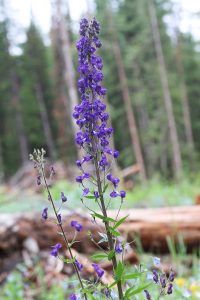
Herbal Medicine and Eye Health
Kenneth Proefrock, ND
Conditions of the eye can be extremely debilitating, depriving a person of their independence and rendering them unable to perform even the simplest tasks that we take for granted. Allergic eye disease and conjunctivitis are two very straightforward acute conditions of the eye that are commonly seen in clinical practice and can be effectively treated with botanical therapies. Cataracts and glaucoma are the two most common chronic conditions of the eye and, likewise, respond very well to treatment with botanical agents. We discuss the etiology of these eye conditions as well as novel and effective treatment strategies using tools and resources that one can find in every kitchen and most gardens.
Backyard Herbal First Aid Kit
Jeannie Dunn and Tricia Shapiro
From garden to kitchen to home medicine cabinet, this class shows how to use local wild plants or herbs that are easily cultivated in a home garden. This hands-on workshop demonstrates harvest and preparation of first aid remedies, and provides a few samples to take home.
6:00 – 7:00 Dinner and Exhibit Break

Keynote: Endocrine Disruptors: History, Recent Research and Individual and Societal Remedies
Leo Trasande, MD, MPP
Following in the footsteps of Rachel Carson’s Silent Spring and Theo Colborn’s Our Stolen Future, best-selling author, researcher and pediatrician Leo Trasande reveals the far-reaching health implications of chemicals in our environment. He describes the recent research which exposes the subtle and long-lasting effects of endocrine disrupting chemicals (EDCs) and proposes remedies that begin with the individual family and expand to worldwide economies.
Sunday June 2
7:30 AM – 8:30 AM Breakfast
9:00 AM – 10:30 AM
Panel Discussion: Managing the Effects of Endocrine Disruptors with Botanical Medicine
Jason Miller, DACM, Kenneth Proefrock, ND and Mary Rondeau, ND
Addressing the challenges presented in the keynote address the previous evening, the panelists look at the therapeutic benefit of botanicals and other natural therapies. Topics include botanical management of the consequences of exposure to endocrine disrupting chemicals (EDCs) on fetal neurological development into adulthood, cancer and children’s health.
10:30 AM – 11:00 AM
Refreshments and Exhibit Break
11:00 AM – 12:30 PM
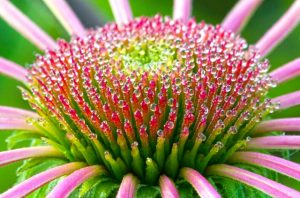
Developing a Trauma-Informed Herbal Protocol
Teresa Boardwine RH(AHG)
Trauma-informed care is now mandated in child care centers, schools and all state government agencies. Counselors, teachers and emergency responders are being trained to serve the community during accidents and tragedies, and I feel it is time for herbalists, naturopaths and other holistic practitioners to also become trauma-informed practitioners. Consider what is needed in an appropriate protocol to support an individual in recovery, and know what to collect in your business or community to be able to offer herbal support in case of a natural disaster or tragedy.
Slow the Decline: New Developments in Brain Boosting Herbs
Mary Bove, ND
Mental clarity and sharpness can be assisted with a classification of herbs known as nootropics. Nootropic herbs are a specific group of plants which enhance cognition, mental alertness, and aid in reducing mental fatigue. Use of nootropic herbs as super foods, beverages, aromas and extracts can keep the brain synapses firing and our brain performing. Learn simple ways to use nootropic herbs in daily life and the science that guides their use: saffron, spearmint, bacopa, ginkgo, gotu kola, lemon balm and others.
Remedies for Chronic Bronchitis and Asthma
Kat Maier RH(AHG)
Our lungs are considered the most delicate organs of our bodies according to Traditional Chinese medicine. They are also the most vulnerable, as they are the first line of defense after the upper respiratory system. This class presents the energetics of the lungs; look closely at what is needed to provide optimum conditions for this organ system and see how kidney health is foundational to good respiratory strength. We look at herbal support for asthma, bronchitis and offer remedies for damage due to smoke inhalation.
Herb Walk
Doug Elliott
Whether he’s pointing out poison ivy, pontificating on poke sallet, crooning about creasy greens, jiving about ginseng, or extolling the virtues of dandelions, this herbalist, author, and storyteller will delight and amaze you with his broad, practical, scientific and cultural knowledge of the area’s many useful wild plants.
12:30 PM – 1:30 PM Lunch
12:30 PM – 2:00 PM Exhibit Hall Open
2:00 PM – 3:30 PM
Demystifying Detoxification
Jason Miller, DACM, LAc
Most detoxification cleanses aim to enhance the body’s elimination pathways, which are a key part of the detoxification process. However, the results of short term cleanses are temporary, in that they can pull away some of the toxic burden, yet they do not eliminate the source of toxicity. The body is equipped with complex networks designed to alter, neutralize, and eliminate toxic chemicals before they have a chance to cause damage. Botanical compounds enhance detoxification pathways, direct the manufacture of key enzymes to quench reactive molecules, and improve blood and lymph flow. Key nutritional agents enhance cellular metabolism and provide the substrates necessary to build the essential components of our detoxification networks.
Depression in the Elderly
Jillian Stansbury, ND
Chronic mood disorders in the elderly may not respond to pharmaceutical interventions as expected, nor to anxiolytic and anti-depressant herbal medicines as do other populations. This class explores cerebrovascular-supportive and nootropic herbs, nutrients, and specific molecular research useful in crafting herbal formulas for mood disorders in the elder decades.
Herbs in the Trees (Outdoor Walk)
Abby Artemisia
Many of us seem to be knowledgeable about herbaceous plants, those little ones that grow at our feet, but become baffled when it comes to trees. We’ll learn the easy ways to tell trees apart when there are leaves and flowers, and learn some tips for winter identification by observing bark and twig characteristics.
2:00 PM – 5:30 PM
Sunday Intensive: The Chemistry, Pharmacology, Extraction and Safety of Cannabis and Insights into the Endocannabinoid System
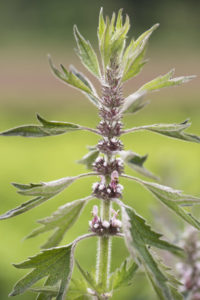
Kevin Spelman, PhD
Many healthcare providers are, unfortunately, unaware of the effects of both the endogenous cannabinoids and phytocannabinoids on human physiology. The endocannabinoid system (ECS) influences multiple organs, tissues and cells, as well as pathways including immune function, metabolism and neurological tone. In this Cannabis intensive we cover the physiology of the ECS, whic provides a framework for understanding the actions of Cannabis. A detailed focus on THC, CBD and Cannabis extracts will look at their influence in many conditions such as mood disorders, seizures, cancers and the neuroprotective activity of both THC and CBD. We also dissect the chemistry of Cannabis, discuss different extraction methods, and the evidence base for safety for medical Cannabis.($79)
3:30 PM – 4:00 PM
Refreshments and Exhibit Break
4:00 PM – 5:30 PM
Managing Chronic Illness with Herbal Medicine-Useful Plants and Formulas for the Practicing Herbalist
7Song RH(AHG)
The goal of this class is to help practicing herbalists and advanced herbal students gain practical skills working with people being treated for chronic health issues, including Lyme disease, long-term mental health conditions and pain syndromes. This includes using various preparations such as teas, tinctures and external applications as well as considerations such as dosage and patient compliance.
The Anti-Aging Power of Sleep
Mary Rondeau, ND, RH(AHG)
What is more anti-aging that a good night’s sleep? Actually, not much! Increasing data demonstrates the importance of sleep and circadian rhythms on skin health, memory and cognition. Healthy sleep cycles can be more difficult to maintain as the body ages and elderly patients are often prescribed medications like benzodiazepines which can do more harm than benefit. Our intrinsic.need for sleep changes as our bodies change over time. Herbal medicine offers many choices when considering sleep maintenance and management. This presentation also reviews Ayurvedic and Naturopathic approaches to the anti-aging powers of sleep.
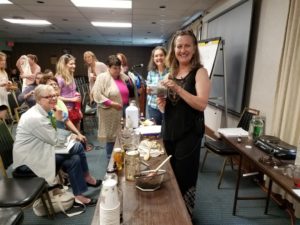
Longevity Elixirs, Foods & Recipes
Teresa Boardwine RH(AHG)
This list of anti-aging, collagen building, nootropic, restorative, antioxidant beverages and foods support longevity. Foods rich in phytochemicals can slow down aging. Learn to work the longevity herbs into something delicious and nutritious. Enjoy these recipes created just for this class!
- Blueberry Kudzu pudding
- Goji Berry muffins
- Bone Broth Mega Food
- Emperor’s Reishi Elixir
- Lion’s Mane Mushroom Melody
- Chaga Cordyceps Coffee
- Golden Milk with Ashwagandha
- Green Goddess Celery Juice
- Detox Tonic Turmeric Shot
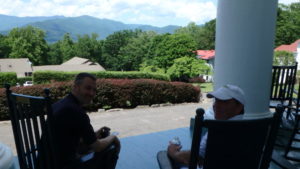
6:00 PM –7:00 PM
Dinner and Exhibit Break
7:30 PM – 9:00 PM
Fireside program in the amphitheater–details to be announced
Monday June 3
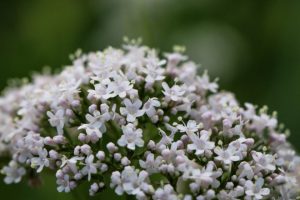
7:30 – 8:30 AM Breakfast
8:30 AM – 10:00 AM
The Persistence of Memory: Oneirogenic (Dream-Enhancing) Plant Medicines, Personal Identity and the Dream State
Kenneth Proefrock, ND
Sleeping and dreaming are universal aspects of human life that are adversely affected as we age. Sleeping is that magical state that allows us to recharge our batteries and process the events of our days. Even more than that, the dream state is our own personal on-ramp to the super-highway of the collective unconscious; every body’s portal to the spirit world. The term “oneirogenic” refers to practices that stimulate the formation of dreams. There is a long history of employing botanical preparations in order to produce or to enhance the divinatory nature of dreams. Here we discuss the role that sleep and dreaming play in reminding us of who we are, in a practical as well as a cosmic sense. We discuss plant medicines that have enjoyed a long history of encouraging restful sleep and provocative dream states.
Boost your Fertility: A Pre-Fertility Prep Program for Men and Women
Mary Bove, ND
There are simple steps for tuning up fertility in men and women, which can be part of a focused support for reproductive fertility health and pregnancy wellness. Some parts of such programs are best done several months before trying to conceive and others are more pregnancy-friendly. Herbal, nutritional and dietary helpful hints are shared.
ADD, ADHD and Attention and Focus Concerns in Adults and Children: Assessment, Laboratory Considerations and Treatment
Mary Rondeau, ND, RH(AHG)
According to the CDC, approximately ten percent of children have been diagnosed with ADHD by the age of seventeen. Sixty percent of the children diagnosed go on to have attention and focus issues as adults A thorough history intake, laboratory assessment, sleep assessment and social history are important in determining proper and effective treatments for attention and focus issues. Botanicals are highlighted in treatment options along with Ayurvedic and naturopathic approaches.
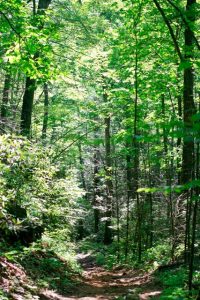
Herb Walk
Doug Elliott
A combination plant walk and discussion about using local and naturalized plants for common injuries and illnesses, this class also includes a theoretical presentation on the possible application of these plants when there is less access to pharmaceuticals.
10:00 AM – 10:30 AM
Refreshments and Exhibit Break
10:30 AM – 12:00 PM
Phytochemical Pleiotropy in Neurology: Reductionism at its Best
Kevin Spelman, PhD
Pleiotropy on the molecular level is the ability of a compound to hit multiple targets and have polyvalent property. This is due to the chemical properties of phytonutrients which generally engage with multiple protein targets, but also has to do with the unique pharmacokinetics that botanical extracts exhibit. In this lecture we review botanicals containing compounds known to hit multiple targets and tie those modes of activities into therapeutic outcomes. A pharmaceutical will also be covered for comparison.
Botanical Therapies for Stroke Recovery
Jillian Stansbury, ND
Although most of it is molecular and animal-based, there is now a large amount of research on plant-based approaches for acute stroke recovery which supports traditional folkloric approaches. Learn what herbs may offer neuroprotection in acute ischemic states, what molecules may support neuro-regeneration, and what herbs offer regenerative effects on the cerebral vasculature.
Herb Walk
Doug Elliott
Laugh and learn as Doug guides you through a wealth of medicinal herbs and regales you with stories of the plants, the medicines and the people of the Appalachians.
12:00 PM – 1:00 PM
Lunch and Exhibit Break (Exhibit Hall closes at 1 PM Monday)
1:00 PM – 2:00 PM
Closing Panel: Clinical Roundtable
Kevin Spelman, PhD, Jason Miller, DACM and Teresa Boardwine, RH (AHG)
We invite practitioners attending the panel to submit a case for review. Panelists will choose two cases to discuss in detail and provide treatment recommendations.
2:00 PM – 2:10 PM Closing
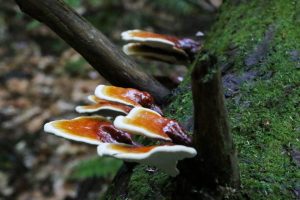
7Song RH(AHG)
7Song is director of the Northeast School of Botanical Medicine and practices as a clinical herbalist at Ithaca Free Clinic in Ithaca, NY. Botany is his passion, and he spends many hours photographing medicinal plants and teaching about botany, medicinal uses and clinical skills at his school and at conferences around the country.
Presentations:
1. A Botanical Field Walk (Outdoors)
2. Managing Chronic Illness with Herbal Medicine-Useful Plants and Formulas for the Practicing Herbalist: Lyme Disease, Long-Term Mental Health Conditions and Pain Syndromes
3. Emergency Herbal First Aid Plant Walk (Outdoors)
The Executive Director of TAP Integrative, a nonprofit web-based educational resource for integrative practitioners. Dr. Alschuler is also a Professor of Clinical Medicine at the University of Arizona School of Medicine where she is on the faculty of the Arizona Center for Integrative Medicine.
She practices naturopathic oncology out of Naturopathic Specialists, LLC. Dr. Alschuler co-hosts a radio show, Five To Thrive Live! and is co-founder of the iTHRIVE Plan, a lifestyle app for cancer survivors. She is co-author of Definitive Guide to Cancer, now in its 3rd edition, and Definitive Guide to Thriving After Cancer.
Presentations:
1. Intensive: Impact of Stress on Accelerated Aging: Botanical Remediation ($89)
2. A Tale of Cancer and our Aging Genome
3. Breast Cancer Update
Abby Artemisia
An herbalist and botanist living in the mountains of western North Carolina, Abby is dedicated to the practice and teaching of herbalism. She makes her own medicines and her passion is taking people out into the woods to find the botanical medicines growing all around us.
Presentation:
1. Herbs in the Trees (Outdoor Walk)
Teresa Boardwine, RH(AHG)
Teresa Boardwine operates Green Comfort School of Herbal Medicine in the Blue Ridge Mountains of Virginia, where she offers classes, consultations and online access to her workshops. She has been teaching her hands-on medicine making classes for over 20 years.
Presentations:
1. Longevity Elixirs, Foods and Recipes (Demonstration)
2. Developing a Trauma-Informed Herbal Protocol
3. Monday Panel: Clinical Roundtable with Jason Miller and Kevin Spelman
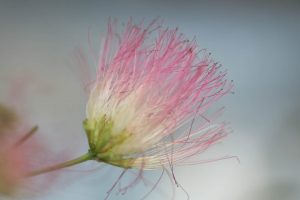
Mary Bove, ND
A clinical medical herbalist, Mary Bove had a practice in family medicine in Brattleboro, Vermont for over 20 years. She is the author of An Encyclopedia of Natural Healing for Children and Infants, and recently produced an iPhone App, Momma Nature’s Food Pharm Guide. She is currently the botanical educator for Gaia Herbs, Inc.
Presentations:
1. Slow the Decline: New Developments in Brain Boosting Herbs
2. Calm, Cool and Uplifted with Mood Enhancing Plants
3. Boost your Fertility: A Pre-Fertility Prep Program for Men and Women
Jeannie Dunn and Tricia Shapiro
Jeannie Dunn is the owner of Red Moon Herbs. where she is dedicated to creating herbal products from local, abundant plants. As an herbalist and NC native, Jeannie herbal roots go back to the farming lifestyle infused in her as a child. She picked strawberries, canned vegetables and pulled weeds from row crops with her parents and three siblings on their multi-generational family farm in Efland, NC. Today, knowing the powerful healing properties of those “weeds”, Jeannie happily uses them in her fermentations, herbal extracts and fun elixirs.
Tricia Shapiro is the owner and operator of Hap Mountain Herbals, where herbal remedies are made with plants harvested wild or grown organically at or near her remote mountain home in western North Carolina. It is a small family business, where they limit their herbal line so it can be sustainable and healthy for the plants she grows and harvests, and for their gardens and the forests around them.
Presentation:
1. Backyard Herbal First Aid Kit
Doug Elliott
Doug Elliott is an herbalist, storyteller, basket maker and author who presents programs from Canada to the Caribbean. He has written four books, including Wild Roots, and recorded a number of award-winning albums of stories and songs. His latest book: Swarm Tree: Of Honeybees, Honeymoons and the Tree of Life.
Presentations:
1. Three Herb Walks
Joe Hollis
Joe Hollis has lectured, consulted and taught workshops in medicinal herb identification, cultivation and processing at Mountain Gardens and at various colleges and conferences in North Carolina for over 30 years. Mountain Gardens sells its seeds, plants and preparations at herb fairs and medicinal herb conferences, and via the internet at the website: www.mountaingardensherbs.com.
Presentation:
1. Intensive at Mountain Gardens (in Burnsville about 1 hour from Blue Ridge Assembly) THIS EVENT IS FULL
Friday May 31, 1:30 – 5:30 PM: Ecology, Propagation and Cultivation of Native and Oriental Medicinal Herbs (Cost $59)
Kat Maier RH(AHG)
Kat has been a practicing herbalist for over twenty years and is currently director of Sacred Plant Traditions in Charlottesville, Virginia where she offers a three-year clinical/community herbalist training program. She began studying plants in the Peace Corps in Chile and is the co-author of Bush Medicine of the Bahamas.
Presentations:
1. Five Allies for our Times: Lobelia, Poke, Prickly Ash, Motherwort and Black Cohosh
2. Herbal Support for Managing Chronic Bronchitis and Asthma
3. Plant Walk: Establishing Plant Relations
Jason Miller, DACM, LAc
Jason Miller practices botanical and nutritional medicine, acupuncture, and Asian bodywork at his clinic, Jade Mountain Medicine in Ashland, Oregon. He received his master’s degree in acupuncture and Oriental medicine from the Oregon College of Oriental Medicine in 2005, and completed a postgraduate internship at the “House of Celebrity Doctors” in Nanjing, China. He earned his Doctor of Acupuncure and Chinese Medicine (DACM) degree from Pacific Collegfe of Oriental Medicine in 2018. His approach bridges the frameworks of traditional and modern medicine in the management of chronic disease.
Presentations:
1. Botanical Medicines and Cellular Receptor Networks
2. Demystifying Detoxification
3. Sunday Panel: Managing the Effects of Endocrine Disruptors with Botanical Medicine
4. Monday Panel: Clinical Roundtable with Teresa Boardwine and Kevin Spelman
Kenneth Proefrock, ND
A naturopathic physician practicing in Sun City, Arizona. He is the vice-president of the North American Board of Naturopathic Examiners and chair of the biochemistry portion of the naturopathic physician’s licensing exam.
Presentations:
1. The Persistence of Memory: Oneirogenic Plant Medicines, Personal Identity and the Dream State
2. Herbal Medicine and Eye Health (Includes demonstration of external eye remedies)
3. Botanical Interventions in the Treatment of Liver Conditions-Including Fatty Liver Disease, Fibrosis, and Gall Bladder Dysfunction
4. Sunday Panel: Managing the Effects of Endocrine Disruptors with Botanical Medicine
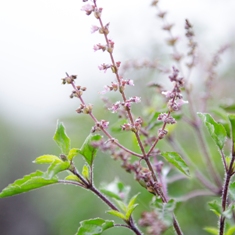 Mary Rondeau, ND RH(AHG)
Mary Rondeau, ND RH(AHG)
Mary Rondeau specializes in natural medicine for chronic illness in Fort Collins, Colorado. Following medical school training at SCNM and residency training in Utah, she continued her education in southern India, working in various hospital and private practice settings. Reducing medication for children is one of her areas of expertise, and she has found a combination of adjustments in diet, lifestyle and herbal and nutritional supplementation to be very helpful.
Presentations:
1. Treatment of Mood Disorders with Botanicals, Lifestyle, Diet and Nutraceuticals
2. ADD and ADHD in Adults and Children: Assessment, Laboratory Considerations and Treatment
3. The Anti-Aging Power of Sleep
4. Sunday Panel: Managing the Effects of Endocrine Disruptors with Botanical Medicine
Kevin Spelman, PhD
Kevin Spelman is a scientist, clinician, educator, herbalist and writer who is currently a consultant for the natural products industry. His past research has included the molecular biology of the brain, immunological studies on Echinacea spp. and researching medicinal plants active against malaria. Besides appearing at conferences worldwide, he is an adjunct faculty member at National College of Naturopathic Medicine and a distinguished lecturer at Maryland University of Integrative Health.
.
Presentations:
1. Intensive Sunday Afternoon: The Chemistry, Pharmacology, Extraction and Safety of Cannabis and Insights into the Endocannabinoid System ($79)
2. Organ Reserve: Aging Gracefully
3. Phytochemical Pleiotropy in Neurology
4. Monday Panel: Clinical Roundtable with Teresa Boardwine and Jason Miller
Jill Stansbury, ND
A naturopathic doctor, Jill Stansbury specializes in women’s health, mental health, and chronic disease. She teaches on the faculty of National University of Naturopathic Medicine, where she was chair of the botanical medicine department for 25 years. She travels extensively in the Peruvian Amazon to study indigenous healers and their herbs.
Presentations:
1. Types of Pain and Herbal Management Tools
2. Depression in the Elderly
3. Naturopathic Therapies for Stroke Recovery
Leo Trasande, MD, MPPLeo Trasande, MD, MPP, is an internationally recognized leader in environmental health and best-selling author of Sicker, Fatter, Poorer: The Urgent Threat of Hormone-Disrupting Chemicals to Our Health and Future . . . and What We Can Do About It. His research focuses on the impacts of chemicals on hormones in our bodies. He also has led the way in documenting the economic costs of diseases of environmental origin to convince policymakers to take action.
Presentation:
1. Keynote: Endocrine Disruptors: History, Recent Research and Individual and Societal Remedies
David Winston RH(AHG)
David Winston is an herbalist and ethnobotanist with 41 years of training and clinical experience in Cherokee, Chinese and Western/Eclectic herbal traditions. He offers a two year clinical training program in botanical medicine at David Winston’s Center for Herbal Studies and is the founder and president of Herbalist and Alchemist, Inc.
Presentations:
1. Friday 10 AM to 3 PM: Ethnobotanical and Native Plant Field Study ($69)
2. Nervines: Building a Better Foundation for the Nervous System
3. TCM and Ayurvedic Herbs that Western Clinicians Really Need to Know

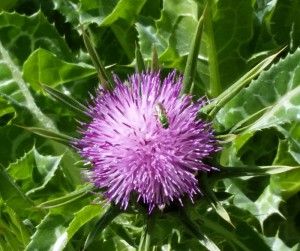
Registration Fees
$329 by March 5
$399 by April 12
$459 after that date
Online registration and phone registration are now closed.
You are welcome to register at the door.
Registration fee covers all lectures, panel discussions and other group meetings. Extra fees for intensives, lodging and meals
Information: 541-482-3016
Lodging and Meal Information
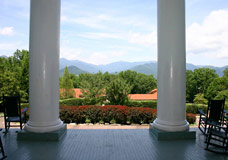 Blue Ridge Assembly, Black Mountain, NC
Blue Ridge Assembly, Black Mountain, NC
84 Blue Ridge Circle, Black Mountain, NC 28711
All inclusive lodging and meal packages start at just $186 for three night’s lodging and eight meals. Commuter meals are also available for $72 for the weekend.
Register for lodging and meals online
Blue Ridge does not take reservations by phone.
Alternate Lodging in Black Mountain:
Quality Inn (828) 669-9950
Super 8 Motel (828) 357-4150
These are both about 10 minutes away.
Camping:
The closest campgrounds are in Swannanoa, about 10 minutes away from Blue Ridge Assembly. They offer tent camping, RV hookups and camping cabins. Call KOA at (800) 562-5907 or Mama Gertie’s Hideaway at (828) 686-4258 for reservations.
Airport Transportation
The closest airport is Asheville Regional Airport. Airport van: Diamond Executive Car Transportation. Reservations: call (828) 281-8139 and mention the herb symposium. Please have your flight arrival and departure times ready when you call. Cost: $65 one way from the airport to Blue Ridge (45 minute trip) for one person. Fees are divided up if there’s more than one person per trip.
Cancellations
Before May 16, symposium and intensive fees will be refunded minus $50 processing fee per registrant. No refunds can be given after May 15, 2019. Please make all refund requests by email
Continuing Education
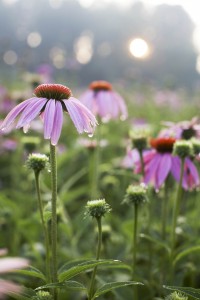
Continuing Education Credits (NEW! Please sign up for your CE credits when you fill out your registration form).
All aprrovals now in for CE, CME, CNE, PDA and CEUs for:
- Acupuncturists: Maximum 22.5 PDA (hours) includes Friday AM Field Study approved by NCCAOM. Details PDA credits
- Naturopathic Physicians: Maximum 21.5 CME hours of which 10 hours can be pharmacy (includes Friday Pre-conference intensive) approved by OBNM. Details CME credits for NDs
- Nursing: Approved for maximum 22.5 CNE contact hours includes attendance at Friday pre-conference field study.(Note: $35 charge for nursing CNE due to high cost of new application.) Details on Contact Hours
Approved by the Continuing Education Nursing Group (formerly the Western Multi-State Division) an accredited approver by the American Nurses Credentialing Center’s Commission on Accreditation. - Pharmacists Licensed in North Carolina: Approved for maximum 21.5 hours by NCAP. Includes Friday Pre-conference Intensive
We will post application status and approvals as they are available.
Number of credits depends on which lectures are attended.
CE Questions? Contact us and we’ll be happy to help.
Lecture Notes
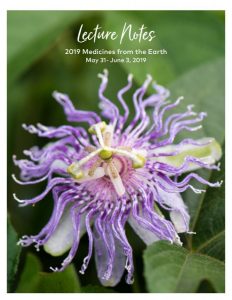
Lecture notes are compiled into an online book (proceedings) which is available to all registrants at no cost. In the beginning of May registrants will be sent a link and password to access the teacher materials online. Printed books are also available for $20 at the symposium ($30 afterwards).
Thanks to Gaia Herbs and 7Song for the beautiful photos on this page!
| FRIDAY, May 31 |
|||||
| 10:00 AM – 3:00 PM | Ethnobotanical and Native Plant Field Study David Winston ($69) Sorry this event is now FULL | ||||
| 1:00 PM - 5:15 PM | Pre-conference Intensive: The Impact of Stress on Accelerated Aging—Botanical Remediation Lise Alschuler, ND ($89) | ||||
| 1:30 PM - 5:30 PM | Ecology, Propagation and Cultivation of Native and Oriental Medicinal Herbs at Mountain Gardens Joe Hollis ($59) Sorry this event is now FULL | ||||
| 5:00 PM - 8:00 PM | Registration in Blue Ridge Assembly Pavilion (5 – 7 PM Joe Hallock and Friends play old time mountain music) | ||||
| SATURDAY, JUNE 1 |
|||||
| 7:30 AM – 8:30 AM | Breakfast: Dining Room in Blue Ridge Center | ||||
| 7:30 AM – 8:30 AM | Registration: Blue Ridge Assembly Pavilion | ||||
| 8:30 AM - 9:15 AM | Opening Meeting—Washburn |
||||
| 9:30 AM - 11 AM | Chinese and Ayurvedic Herbs that Western Herbalists Really Need to Know David Winston | Five Plant Allies for our Times Kat Maier | Breast Cancer Update Lise Alschuler | Botanical Field Walk 7Song |
|
| 11:00 AM - 11:30 AM | Refreshments/Exhibit Break | ||||
| 11:30 AM - 1 PM | Botanicals for Liver Conditions including Fatty Liver, Fibrosis and Gall Bladder Kenneth Proefrock | Calm and Cool with Mood Enhancing Plants Mary Bove | Organ Reserve: Aging Gracefully Kevin Spelman | Herb Walk Doug Elliott |
|
| 1:00 PM - 2:30 PM | Lunch and Exhibit Break | ||||
| 2:30 PM - 4:00 PM | Types of Pain and Botanical Medicine Jillian Stansbury | Botanical Medicines and Cellular Receptor Networks Jason Miller | Nervines David Winston | Establishing Plant Relations Kat Maier |
|
| 4:00 PM - 4:30 PM | Refreshments/Exhibit Break | ||||
| 4:30 PM - 6:00 PM | Mood Disorders and Natural Medicine Mary Rondeau | A Tale of Cancer and our Aging Genome Lise Alschuler | Herbal Medicine and Eye Health Kenneth Proefrock | Preparing a Backyard Herbal First Aid Kit (Demonstration) Jeannie Dunn and Tricia Shapiro |
|
| 6:00 PM - 7:00 PM | Dinner Blue Ridge Center | ||||
| 6:00 PM - 7:00 PM | Exhibit Break | ||||
| 8:00 PM - 9:30 PM | Keynote: Endocrine Disruptors: History, Recent Research and Individual & Societal Remedies Leo Trasande, MD |
||||
| SUNDAY, JUNE 2 |
|||||
| 7:30 AM - 8:30 AM | Breakfast: Dining Room Blue Ridge Center |
||||
| 9:00 AM - 10:30 AM | Panel Discussion: Managing the Effects of Endocrine Disruptors with Botanical Medicine Jason Miller, DACM, Kenneth Proefrock, ND and Mary Rondeau, ND |
||||
| 10:30 AM - 11 AM | Refreshments/Exhibit Break | ||||
| 11 AM - 12:30 PM | Developing a Trauma-Informed Herbal Protocol Teresa Boardwine | Slow the Decline: New Developments in Brain Boosting Herbs Mary Bove | Herbal Support for Managing Bronchitis and Asthma Kat Maier | Herb Walk Doug Elliott |
|
| 12:30 PM - 2 PM | Lunch and Exhibit Break | ||||
| 2:00 PM - 3:30 PM | Demystifying Detoxification Jason Miller | Depression in the Elderly Jillian Stansbury | Herbs in the Trees (Outdoor Plant Walk) Abby Artemesia | 2:00 PM - 5:30 PM Sunday Intensive: The Chemistry, Pharmacology, Extraction and Safety of Cannabis and Insights into the Endocannabinoid System Kevin Spelman($79) |
|
| 3:30 PM - 4 PM | Refreshments/Exhibit Break | ||||
| 4:00 PM - 5:30 PM | Chronic Illness and Botanical Medicine: Lyme Disease, Mental Health and Pain Syndromes 7Song | The Anti-Aging Power of Sleep Mary Rondeau | Longevity Elixirs, Foods & Recipes (Demonstration) Teresa Boardwine |
||
| 6:00 PM - 7:00 PM | Dinner: Blue Ridge Center |
||||
| 5:30 PM - 7:00 PM | Exhibit Hall Open |
||||
| 7:30 PM - 9:00 PM | Outdoor Program by the Fire in the Amphitheater |
||||
| MONDAY, JUNE 3 |
|||||
| 7:30 AM - 8:30 AM | Breakfast: Dining Room Blue Ridge Center | ||||
| 8:30 AM - 10:00 AM | The Persistence of Memory: Oneirogenic (Dream- Enhancing) Plant Medicines Kenneth Proefrock | A Pre-Fertility Program for Men and Women Mary Bove | ADD and ADHD in Adults and Children: Botanical and Nutritional Therapies Mary Rondeau | Emergency Herbal First Aid (Outdoor Class) 7Song |
|
| 10:30 AM - 12:00 PM | Phytochemical Pleiotropy in Neurology Kevin Spelman | Botanical Therapies for Stroke Recovery Jillian Stansbury | Herb Walk Doug Elliott |
||
| Noon - 1:00 PM | Lunch and Exhibit Break | ||||
| 1:00 PM - 2:00 PM | Panel: Clinical Roundtable Teresa Boardwine, Jason Miller and Kevin Spelman | ||||
ONLINE REGISTRATION
$329 by March 5
$399 by April 12
$459 after that date
Online registration and phone registration are now closed.
You are welcome to register at the door.
Register by phone 541-482-3016
Registration fee covers all lectures, panel discussions and other group meetings. Extra fees for intensives, lodging and meals
Questions? Contact us and we’ll be happy to help. Looking forward to seeing you there!
Buy Tickets










